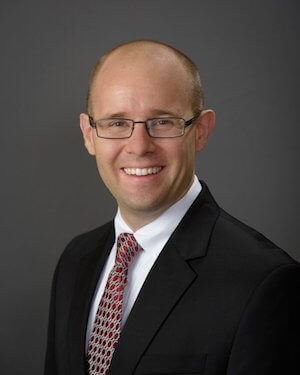Today, career pressure starts early for students.
The excitement that comes from stepping onto campus for the first time, being handed a dorm room key and meeting neighbors in a residence hall is too short-lived. As soon as midterm exams swing around and career fairs start popping up, those feelings of excitement can quickly turn into stress, anxiety and uncertainty.
At 18 years old, many students still don’t know what they want to be when they “grow up.”
They see their student debt mounting, and they resist the idea of graduating college to return to their childhood bedroom. But more than anything, they strive to find a career in their field that they enjoy.
Evolving job requirements
But, starting a career is not as simple as it once was.
With the rise of automation and the declining value of a bachelor’s degree, aspiring professionals have to spend years working internships and entry-level jobs to build networks of relationships and to expand their skill sets.
Although that seems negative, truly it’s a double-edged sword. Jobs aren’t as one-dimensional as they once were.
Take reporters for example. Years ago, writing skills may have been the only requirement to earn a job in the field. But now, reporters may also need to know how to shoot and edit video.
A video editing internship could merely help an aspiring reporter refine his or her secondary skills, or it could help the student find out that his or her true love is actually video, and not writing.
The need to explore
Exploration is the key, according to Kevin Grubb, the executive director of Villanova University’s career center.

“Part of what we try to convey to students at Villanova is this sense of exploration, sense of wonder and sense of creating opportunity for yourself,” Grubb said.
“In a way, careers have become much less of a ladder and more of a jungle gym,” he continued. “There are just so many possible fields out there, and the world of work is changing so dynamically.”
But, to wander and explore does not mean to lose sight of the goal. Exploration must be done ambitiously. Meaning, students must seek out job opportunities and internships that refine their skills and teach them professional experience.
“One of the most important things students can do is go after experiences that are going to practically and relevantly prepare them for what their next step is,” Grubb said.
“Even if the internship or research experience they take on doesn’t wind up being the ultimate industry or job function that they want, the skills and professionalism they gain in those experiences are valuable to whatever that next step might be and applicable to employers of all different kinds,” he continued.
Helping students find employment
Some college and university career centers have recognized employers’ evolving job requirements, and have revamped their approaches to finding students jobs and internships.
Villanova’s career center, for example, now offers the platform “Handshake,” which connects students to relevant employment opportunities based on their personal profiles, interests and search activities. Through the platform, students can find everything from part-time internships to full-time jobs.
“It’s a place where we bring in every employer who wants to hire a Villanovan to post their opportunities,” Grubb said. “It is a robust, very active system that students can log into anytime and use to look for positions and submit their application materials through.”
Villanova has also created its own private networking system — similar to LinkedIn — called the Nova Network. Through the platform, students, alumni, faculty and staff can all connect with each other, share resources, share opportunities, give advice and more.
While Villanova’s platforms may seem like resources for the overly-ambitious, they are actually quite necessary.
The platforms have helped 97 percent of Villanova’s 2018 graduates either earn a job, further their education or pursue other beneficial endeavors.



